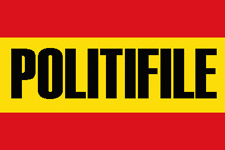► Ideologically divided, Spain’s newest parties agree election reform needed ►
Leadership teams of the ideologically opposed Podemos and Ciudadanos political parties were to meet for the first time in two years Thursday in an effort to reach common ground toward reform of Spain’s electoral law known as LOREG (Ley Orgánica del Régimen Electoral General), which since its enactment in 1985 has governed national, municipal and European parliament elections in Spain, as well as regional elections in some Spanish autonomous communities.
Both the leftwing Podemos and centre-right Ciudadanos leadership have complained about the way in which the LOREG assigns seats under the so-called D’Hondt method, which uses a highest-averages method to assign seats on a party-list, proportional representation basis also used in countries such as Denmark, Portugal, Poland and the Netherlands.
 Both parties say the LOREG’s use of the D’Hondt method unfairly benefits larger, incumbent parties to the detriment of newer and smaller parties. Ciudadanos leader Albert Rivera has said that in the case of elections in December in Catalonia, a region which does not have its own election law, reliance on the LOREG’s D’Hondt calculations combined with a cap on the number of seats assigned to the region’s urban areas around Barcelona, cost anti-independence parties a majority of seats in the regional Parlament even though they won a majority of votes at the ballot box.
Both parties say the LOREG’s use of the D’Hondt method unfairly benefits larger, incumbent parties to the detriment of newer and smaller parties. Ciudadanos leader Albert Rivera has said that in the case of elections in December in Catalonia, a region which does not have its own election law, reliance on the LOREG’s D’Hondt calculations combined with a cap on the number of seats assigned to the region’s urban areas around Barcelona, cost anti-independence parties a majority of seats in the regional Parlament even though they won a majority of votes at the ballot box.
Both parties have called for a fairer system that they say would be more democratic, along the lines of one-person, one vote. To that end, Podemos has aired its preference for switching from the D’Hondt method to the so called Sainte-Laguë system, which is a highest-quotient method of assigning proportional representation seats used in Norway, Sweden and Germany and other countries, which Podemos says leads to greater democracy at the ballot box.
While bitterly divided along ideological lines on most questions, the two parties appear willing to try to broker a new electoral reform in Spain. But to do so, they will need to convince one of the country’s two larger parties, the Socialists (PSOE) or the Partido Popular (PP), in order to garner enough votes to ensure passage by Congress.
► Read More in Spanish at Público, El Confidencial and El Mundo …
► Click to read more news about Politics in Spain …


